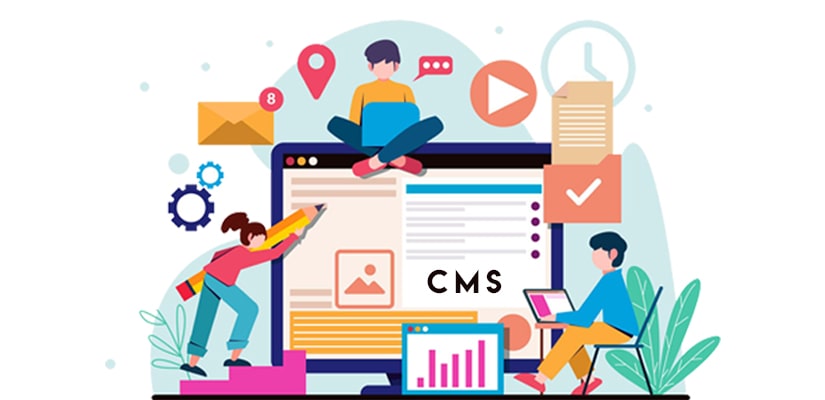CMS is a very huge topic with many technicalities. Let’s start with What is a CMS. CMS, in simple words, means a Content Management System that manages and organizes content without a connected front-end display. The headless CMS is basically where all of your content and assets live. In order to connect it to the front-end you use a content API and distribute your content everywhere and anywhere you need it. The display of content can take any form, namely a website, mobile application, or any other digital platform.
Omni-channel distributor: Headless content isn’t tied to a single presentation concern, so it can make its way to multiple channels. It can power touch-points across any channel or device. From websites to mobile apps, voice-activated digital assistants, email marketing, Apple watch, AR/VR, and more. Even the content can be pushed to Social media channels.
Flexible Editing: Traditional CMS developers have to spend resources on content editing, and content rendering. A headless CMS has an advantage over a traditional one because it doesn’t have to deal with the rendering side of things. Every headless CMS comes with its well-defined API, so developers don’t waste their time managing content, instead they can invest their time in creating it.
Scaling: Headless CMS lets you manage your content from a single source, change developer tools at any time, and benefit from sending your content to high-performance cloud-based hosting. The back-end and front-end are kept separately so there will be no waste of time during maintenance. You can optimize, upgrade or update your website without compromising its performance.
Developer Flexibility: Developers can choose their own front-end tooling as headless content is served over APIs. If you are comfortable with JavaScript instead of PHP or Ruby you can work with it. You can also move from one framework to another, or interchange parts of your stack without affecting the CMS.
Enhanced Security: Since the content publishing isn’t, by any means, connected to the CMS database, you don’t have to be worried about back-end security issues affecting the front end. Also, it becomes a smaller area of attack because the back-end is not connected to the front-end. So there lies security to your content.
Superior user experience: Headless CMS provides premium content management experience to both larger scale and small scale publishers. The quality of the product is not compromised, allowing smaller media houses a superior user and reader experience with Headless CMS.


